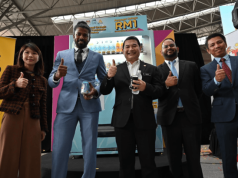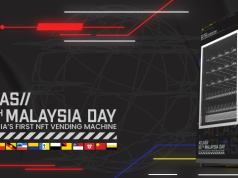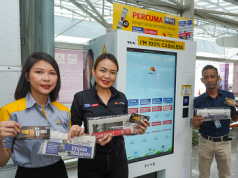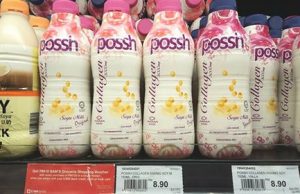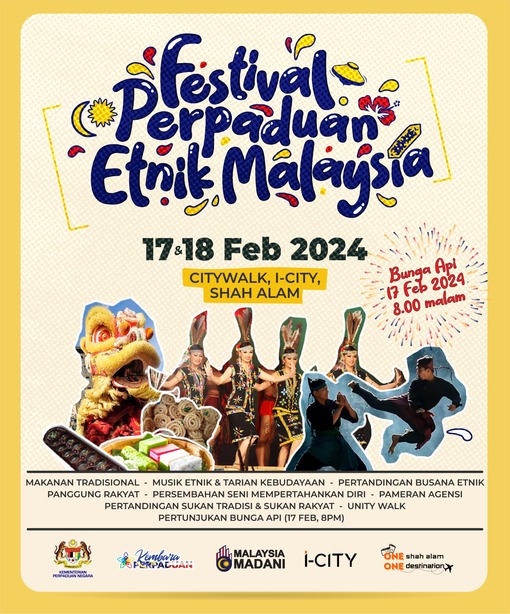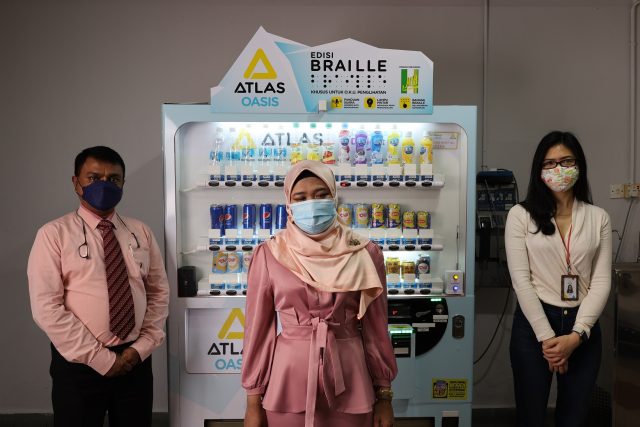
11 vending machines deployed across the Klang Valley in pilot project rollout, certified by the Malaysia Book of Records as the first Braille-enabled vending machines in Malaysia
KUALA LUMPUR, 1 November 2021 – ATLAS Vending, the biggest F&B Vending Operator across Malaysia and Singapore, is making history in its collaboration with the Malaysian Association for the Blind (MAB) to roll out its pilot programme for vending machines specially equipped with additional assistive features to enable accessibility for visually-impaired customers. This first of its kind rollout in Malaysia features vending machines certified by the Malaysia Book of Records as the first Braille-enabled vending machines in Malaysia. The effort is in line with ATLAS Vending’s aim to reduce barriers facing the visually-impaired community, such as the barriers that impede their access to vending machines serving refreshments in public spaces. ATLAS Vending targets to progressively increase accessibility for members of the community with special needs, enabling them to gain access and improving their purchase experience.
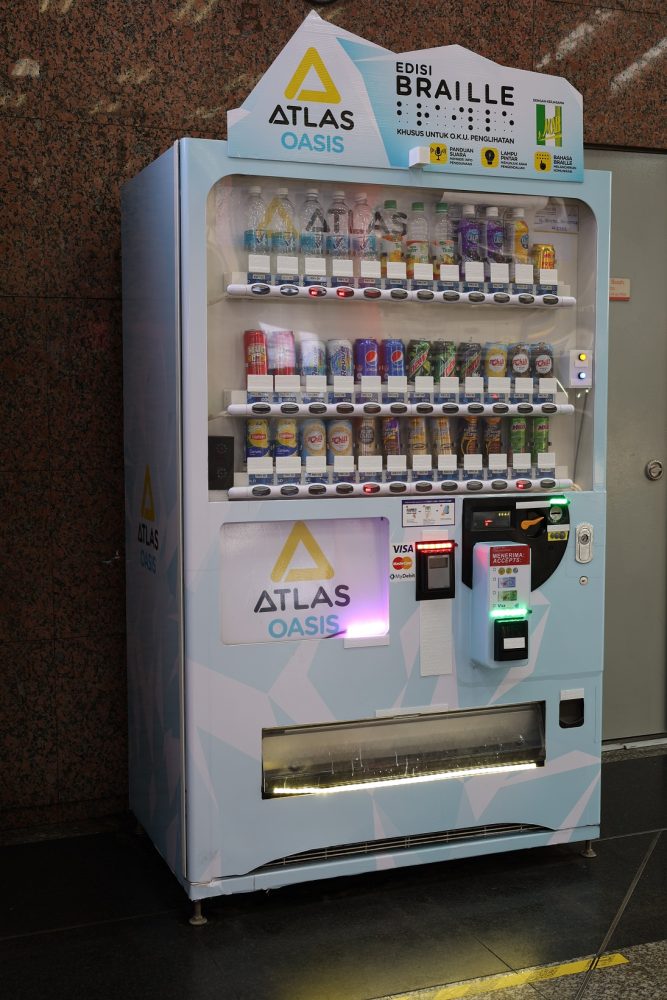
The 11 vending machines rolled out in this pilot project are located around LRT stations including around the Brickfields area. The locations were chosen in consultation with the MAB, with the identified locations being places where the visually-impaired travel back and forth to MAB for work and social purposes. For ease of access, the machines have been equipped with Braille plates as well as indicator lights and motion-sensor triggered audio instructions. The vending machines’ assistive features were designed and tested in collaboration with MAB’s Access team – which specialises in evaluating accessibility functions for the visually-impaired, to ensure that the special features are well-suited to the needs of visually-impaired consumers – although the vending machines also retain typical features for the use of other consumers.
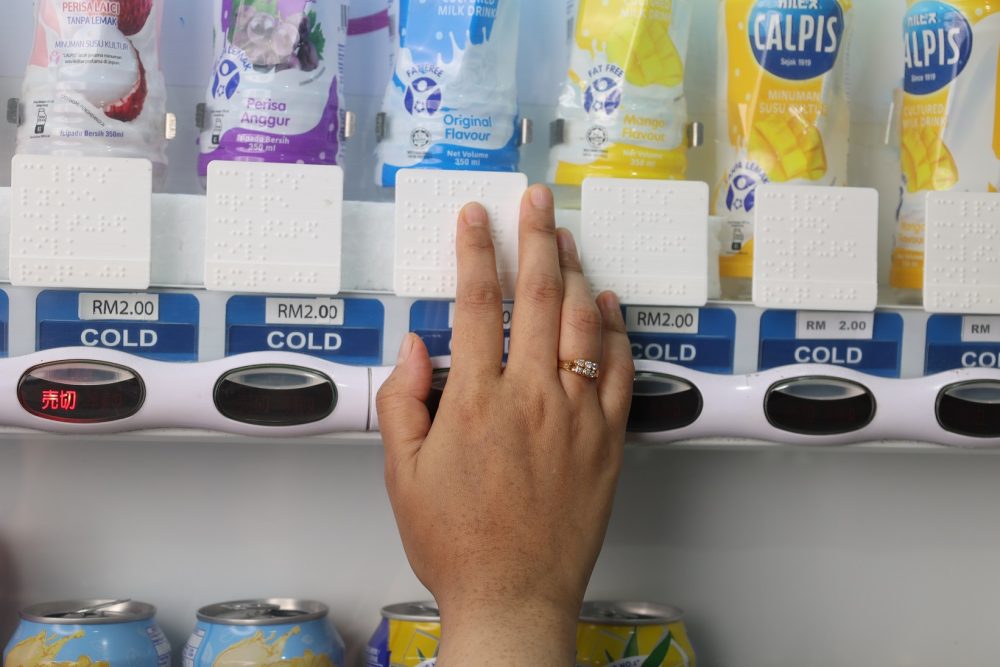
In Malaysia, the National Eye Survey that had been conducted by the Ministry of Health found that the prevalence of low vision among the general population of Malaysia was 2.44% while the prevalence of blindness is 0.29% of the population[1], which means that today, as many as 800,000 Malaysians could be partially sighted while close to 95,000 are blind[2]. For the partially sighted, they may be able to perceive colour and light, and even movement and form, thus the indicator lights on the machines are a helpful assistive tool, in addition to the Braille plates and audio instructions for all visually-impaired users.
“For us at ATLAS Vending, we are extremely delighted that this collaboration has come into fruition after months of working with the team at MAB – from conceptualisation to prototype testing, and to the actual rollout. At each step, the feedback and suggestions from the MAB team were studied and incorporated to ensure that the final design of the machines would be truly convenient for visually-impaired customers. Details such as the spoken speed of the audio instructions and colours of the indicator lights were crucial guidance for us, helping the ATLAS Vending technology team improve the physical design and software features. At ATLAS Vending, we’ve been in the business of dispensing delight for the past 40 years, so this initiative to improve inclusivity by progressively increasing accessibility using technology is another milestone for us,” said Amy Gan, Head of Marketing & Ancillary Business, ATLAS Vending.
George Thomas, Chief Executive Officer of MAB added: “At MAB, it is part of our organisation’s aim to educate and create equal opportunities for visually-impaired persons, to enable them to enjoy the same quality of life as the sighted. We are pleased to have this opportunity to collaborate with ATLAS Vending on such assistive technology for vending machines. People do not realise that without such technology designed for our visually-impaired members, they face barriers in performing seemingly simple tasks that sighted persons may not give a second thought to, like purchasing a can of drink from a vending machine without assistance.”
The vending machines will carry some of Malaysia’s favourite bottled and canned drinks and will have audio-guided instructions for purchasing drinks, with cash and cashless payment options included. As part of the collaboration between ATLAS Vending and MAB, ATLAS Vending is making a RM10,000 donation to the MAB Covid-19 Campaign Fund that aims to help the blind community, especially those who have lost their income due to the pandemic following implementation of the MCO.
Siti Huraizah Ruslan, Accessibility and Advocacy Executive at MAB and also a committee member at the Society of the Blind in Malaysia, shared, “The visually impaired and blind community faces challenges in everyday life. Thus, it is important for us to find ways to be independent and lead a normal life wherever possible. The importance of collaboration and partnership with supportive businesses and organisations like ATLAS Vending is important because we need to provide feedback from our own personal point-of-view as well as from our members. I am pleased to be part of this first rollout and I am looking forward to other potential collaborations in the future with ATLAS Vending as they install more assistive vending machines.”
“At ATLAS Vending, we want to continue ensuring that our vending machines are equipped with the right technology to improve customer experiences, including our first endeavour to bring assistive technology to the visually-impaired community. We are definitely proud to roll out the first 11 vending machines for visually-impaired customers in Malaysia within the Klang Valley and are looking forward to expanding the rollout further where there is a demand or a need from the community,” Gan further added.
[1] Reddy SC et al. International Journal of Ophthalmic Research, 3(2): 234-238. June 2017. Blindness and low vision in Malaysia
[2] Department of Statistics Malaysia, 27 May 2021, Demographic Statistics First Quarter 2021, Malaysia

